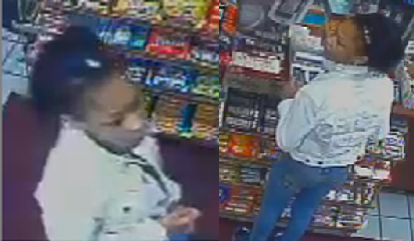90% of child sex abuse victims are abused by a family member or someone they know and trust
How can I overcome the pain of betrayal?
 Betrayal is a gross violation of trust and can be one of the most devastating forms of pain inflicted upon a human being. The suffering of betrayal is often magnified by a sense of vulnerability and exposure. For many, the pain of betrayal is worse than physical violence, deceit, or prejudice. Betrayal destroys the foundation of trust. It’s a shame when innocent people are betrayed and hurt by people they once loved and trusted. The emotional and physical pain inflicted with this type of betrayal can traumatize the victim for a lifetime. The closer the relationship, the greater the pain of betrayal.
Betrayal is a gross violation of trust and can be one of the most devastating forms of pain inflicted upon a human being. The suffering of betrayal is often magnified by a sense of vulnerability and exposure. For many, the pain of betrayal is worse than physical violence, deceit, or prejudice. Betrayal destroys the foundation of trust. It’s a shame when innocent people are betrayed and hurt by people they once loved and trusted. The emotional and physical pain inflicted with this type of betrayal can traumatize the victim for a lifetime. The closer the relationship, the greater the pain of betrayal.
Betrayal is one of the most painful human experiences. Discovering that someone we trusted has deeply hurt us pulls the reality rug from under us. When we see the word “betrayal” we may immediately think “affair.” But betrayal comes in many forms. Abandonment, vicious gossip, and spreading lies also may be experienced as betrayal. A damaging aspect of betrayal is that our sense of reality is undermined. What felt like solid trust suddenly crumbles. Our innocence is shattered. We’re left wondering: What happened? How could this happen? Who is this person? Some betrayals leave us with little choice but to heal and move on with our lives, such as when we’re suddenly abandoned.
Abuse is another form of betrayal that can have long-term consequences for an individual’s adjustment. According to betrayal trauma theory, if you’ve been the victim of childhood sexual abuse at the hands of the person caring for you, you may repress or block the experiences from your memory in order to continue to survive. The closer you are to that abuser, the greater the degree of trauma you experience. and the higher your risk for long-term mental health problems.
In research by University of Oregon psychologist Christina Gamache Martin and colleagues (2011), college students were asked to report whether they had experienced a variety of types of traumatic events. Those who reported abuse at the hands of someone they were close to were most likely to report symptoms of depression, dissociation, andpost-traumatic stress disorder. However, not only was the experience of abuse important, but also the way the participants appraised, or thought about, the abuse. Feeling betrayed, ashamed, anxious, and angry as well as blaming themselves were reactions that accentuated the effect of the abuse itself on their mental health.
Despite the pain, there are ways we can overcome betrayal. The power comes directly from the strength of forgiveness. Read more about recovering from betrayal in the articles below:
 A babysitter in Elkhart County is facing a felony charge after investigators say a toddler died in her care. WSBT 22 learned Jackie Rolston lied to police about how 19-month-old Kirk Coleman died in her care, and it’s not the first time she has been accused of child abuse. Monday, Angie Garza and her family picked out a headstone for her dead grandson. Tuesday – his birthday – they spent St. Patrick’s Day at the cemetery celebrating a little boy they loved so much. “He would have been two,” Garza said. “That was a bad day.” READ MORE HERE
A babysitter in Elkhart County is facing a felony charge after investigators say a toddler died in her care. WSBT 22 learned Jackie Rolston lied to police about how 19-month-old Kirk Coleman died in her care, and it’s not the first time she has been accused of child abuse. Monday, Angie Garza and her family picked out a headstone for her dead grandson. Tuesday – his birthday – they spent St. Patrick’s Day at the cemetery celebrating a little boy they loved so much. “He would have been two,” Garza said. “That was a bad day.” READ MORE HERE
































![Validate my RSS feed [Valid RSS]](http://dreamcatchersforabusedchildren.com/wp-content/uploads/2009/10/valid-rss.png)












